They dart across the football pitch in a blur of red, white, black and green, the colours of their jerseys echoing the Palestinian flags waving in the stands.
But the players of Club Deportivo Palestino are almost as far from Palestine as it is possible to be.
Located more than 13,000 kilometres (8,200 miles) away, the football club finds its home in La Cisterna, a suburb of Santiago, Chile — a sign of the unique role the South American country plays in the Palestinian diaspora.
Chile is home to the largest Palestinian population outside of the Middle East, with approximately 500,000 citizens of Palestinian descent. And as the latest war in Gaza unfolds, the rising death toll has hit close to home for many Chileans, for whom Palestinian culture is threaded into everyday life.
“We’re all subjects of this story,” Chilean rapper and musician Ana Tijoux told Al Jazeera, as she reflected on the ongoing war. “We all have to stand up.”
The conflict began on October 7, when the armed group Hamas launched a surprise attack on Israel, killing 1,400 people and capturing hundreds more.
Ever since, Israel has led a bombing campaign against Gaza, the narrow Palestinian territory home to an estimated 2.3 million people. Supplies have been cut off. Hospitals have shut down. And more than 10,000 Palestinians have died in the blasts, with nowhere to go for safety.
Tijoux, a Latin Grammy winner, has participated in one of the country’s largest pro-Palestinian rallies to date, a concert to raise funds for the remaining hospitals in Gaza and the West Bank.
The history of violence and displacement that Palestinians have faced resonates with Tijoux, who has Indigenous roots in Chile.
One of the best-selling Spanish-language rappers of all time, Tijoux has even collaborated with the Palestinian British artist Shadia Mansour, with whom she released an Arabic-Spanish protest anthem, 2014’s Somos Sur.
“Why does what is happening in Palestine affect us? It has to do with colonisation, genocide, racism and ethnic cleansing. The same patterns of imperialism repeat,” Tijoux said.
Those patterns have, in part, shaped the large Palestinian diaspora in Chile. Three waves of migration have occurred since the end of the 19th century, according to Ricardo Marzuco, a professor at the Center for Arab Studies at the University of Chile.
The first came with the decline of the Ottoman Empire in the late 1800s, as Palestinian merchants sought opportunities in Latin America. After the empire’s collapse, in the interwar period, a second outpouring occurred.
Then another major exodus began in 1948, when the state of Israel was formed and hundreds of thousands of Palestinians were displaced, in an event they refer to as the Nakba or “catastrophe”.
As a result of the economic losses, instability and political persecution they faced, many Palestinians travelled to the Americas to seek opportunities in emerging economies.
“It was the idea of the American dream,” said Marzuco.
Each successive generation that arrived in Chile created opportunities for more to follow, he added.
“It is related to the Arabic concept of extended family, the profound feeling of hospitality and solidarity,” Marzuco said. “The first that arrived and prospered invited relatives to work in their businesses, consolidating into an important community.”
A second-generation Palestinian Chilean, Marzuco said many Palestinians were also attracted to Chile for its mild coastal climate, similar to the Mediterranean environment of their homeland.
“They adapted well in Chile,” Marcuzo said. “There was an affinity with the weather, the environment, and certain elements that belonged to the Chilean landscape.”
Those early waves of Palestinian arrivals encountered xenophobia and racism in Chile, though. They were often lumped together with other Arab immigrants as “Turcos” or “Turks”, a term that grew to have a pejorative meaning.
But nowadays, Chileans of Palestinian descent are represented in some of the highest government offices. They include current mayor and former presidential candidate Daniel Jadue and Senator Francisco Javier Chahuán — politicians from opposite sides of the political spectrum. One is communist, the other right-wing.
“Solidarity with Palestine is expressed across political sectors,” said Marzuco.
Football also served as a means to build acceptance, according to Diego Khamis, the executive director of the Palestinian Community in Chile, an umbrella organisation that represents different Palestinian groups and businesses across the country.
Khamis is a loyal supporter of the Club Deportivo Palestino, a team founded by Palestinian immigrants in the 1920s.
“They thought one of the best ways to make Palestine visible is by creating a professional football club, so that ‘Palestine’ will appear in the newspaper at least once a week,” Khamis explained.
The team is part of the Palestinian Community in Chile. Since 1947, it has competed in the professional leagues and is regularly a leading contender in Chile’s Primera División, the country’s top league.
That gives it a platform to braid together Palestinian activism with football fandom, making slogans like “Free Palestine” a part of everyday life for its legions of supporters.
“At a time when the world was saying that Palestinians didn’t exist, in Chile, we knew it did. How can you say that something doesn’t exist when it’s so present here?” Khamis said.
The visibility of Chile’s Palestinian community has in turn shaped the country’s foreign policy, particularly in recent weeks.
Chilean President Gabriel Boric has repeatedly expressed support for Palestinian human rights since his inauguration in 2022, even withdrawing the country’s ambassador to Israel in condemnation of the current military offensive in Gaza.
“They’ve been among the first to take diplomatic action to protest what is happening,” Khamis said of Boric and his government.
Agustina Manzur, a 24-year-old makeup artist, has been surprised at just how great the outpouring of support has been since the start of the war.
A fourth-generation Chilean of Palestinian descent, she recently attended a protest outside the Israeli embassy in Santiago, Chile.
Dressed in her keffiyeh — a traditional Palestinian scarf — and carrying a Palestine flag, she arrived early. She was stunned to see the number of protesters already there.
Hundreds of people had gathered outside the embassy. The crowd grew so large that protesters spilled off the sidewalk and onto the busy road, cutting off traffic.
“It was comforting to see so many of us fighting for the same cause,” Manzur said. Lately, her social media has been awash with the devastation from Israeli attacks. “I couldn’t sleep. It totally consumed me.”
But she has found hope among members of Chile’s large Palestinian community and its supporters, all raising their voices against the war. She plans to protest again soon.
“We have to speak up because people in Gaza cannot. They don’t even have internet, light, or water,” Manzur said. “We cannot physically get Palestinians out, so the least we can do is protest for them.”




0 Comments